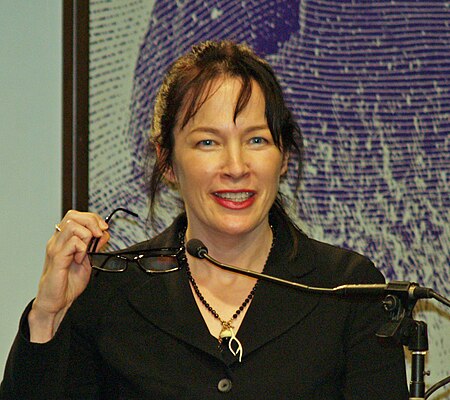Accessory (legal term)
|
Read other articles:

Disambiguazione – Se stai cercando altri significati, vedi Spagna (disambigua). Disambiguazione – Regno di Spagna rimanda qui. Se stai cercando altri significati, vedi Regno di Spagna (disambigua). Spagna (dettagli) (dettagli) Plus ultra Spagna - LocalizzazioneLa Spagna (verde scuro) nell'Unione europea (verde chiaro) Dati amministrativiNome completoRegno di Spagna Nome ufficialeReino de España Lingue ufficiali spagnolo a livello nazionale basco nei Paesi Baschi e in Navarra; catala…

Bristol Rovers 2010–11 football seasonBristol Rovers2010–11 seasonChairmanNick HiggsManagerPaul Trollope (until 15 December 2010)Darren Patterson (caretaker manager)Dave Penney (from 10 January 2011)League One22nd (Relegated)FA CupFirst round (Eliminated by DarlingtonLeague CupFirst round (Eliminated by Oxford United)Football League TrophySouthern Section area semi-final (Eliminated by Exeter City)Top goalscorerLeague: All: Will Hoskins - 20Highest home attendance8340 (vs. Sheffield Wednesda…

Desde mi cielo de Alice SeboldGénero NovelaSubgénero Literatura fantástica y aprendizaje Ambientada en Pensilvania Edición original en inglésTítulo original The Lovely BonesEditorial Little, Brown and Company País Estados Unidos Fecha de publicación 2003 Premios Premio Bram Stoker (2002) Edición traducida al españolTraducido por Aurora Echevarría PérezPaís Estados Unidos[editar datos en Wikidata] Desde mi cielo es una novela corta dramática, basada en hechos rea…

American college football program Michigan State Spartans football2024 Michigan State Spartans football team First season1896Athletic directorAlan HallerHead coachJonathan Smith 1st season, 0–0 (–)StadiumSpartan Stadium(capacity: 75,005)Field surfaceGrassLocationEast Lansing, MichiganConferenceBig Ten ConferenceDivisionEastAll-time record730–487–44 (.596)Bowl record14–16 (.467)Playoff appearances1 (2015)Playoff record0–1Claimed national titles6 (1951, 1952, 1955…

This is the talk page for discussing WikiProject Human rights and anything related to its purposes and tasks. Put new text under old text. Click here to start a new topic. New to Wikipedia? Welcome! Learn to edit; get help. Assume good faith Be polite and avoid personal attacks Be welcoming to newcomers Seek dispute resolution if needed ShortcutWT:HR Archives: 1, 2, 3, 4, 5, 6, 7, 8, 9, 10, 11, 12Auto-archiving period: 90 days Human rights Project‑classThis page is within the scope of WikiP…

Ornithologie de Francis Willughby. Cet ouvrage est considéré comme le début de l'ornithologie scientifique en Europe, et qui a révolutionné l'ornithologie, en organisant les espèces selon leurs caractéristiques physiques. Cette chronologie de l'ornithologie présente, à travers les siècles, les avancées historiques en ornithologie (branche de l'histoire naturelle consacrée à l'étude des oiseaux). Antiquité 1500 av. J.-C. – vers 800 av. J.-C. : les chants védiques mentionnen…

Supporters of Paris Saint-Germain F.C. PSG supporters before the 2006 Coupe de France final against arch-rivals Marseille. Paris Saint-Germain Football Club (PSG) is the most popular football club in France and one of the most widely supported teams in the world. Famous PSG fans include Nicolas Sarkozy, Tony Parker, Fabio Quartararo, Tom Brady, Patrick Dempsey, Victoria Azarenka, Teddy Riner and DJ Snake. Lacking a big passionate fanbase, the club began offering cheaper season tickets to young s…

本條目存在以下問題,請協助改善本條目或在討論頁針對議題發表看法。 此條目需要編修,以確保文法、用詞、语气、格式、標點等使用恰当。 (2013年8月6日)請按照校對指引,幫助编辑這個條目。(幫助、討論) 此條目剧情、虛構用語或人物介紹过长过细,需清理无关故事主轴的细节、用語和角色介紹。 (2020年10月6日)劇情、用語和人物介紹都只是用於了解故事主軸,輔助讀�…

Sébastien Chavanel Sébastien Chavanel alla Quatre Jours de Dunkerque 2011 Nazionalità Francia Altezza 182 cm Peso 75 kg Ciclismo Specialità Strada Termine carriera 2016 CarrieraSquadre di club 2003-2004 Br. la Boulangère2005-2006 Bouygues Télécom2007-2008 Française des Jeux2009 FDJ2010-2013 Europcar2014-2016 FDJ Statistiche aggiornate al febbraio 2017 Modifica dati su Wikidata · Manuale Sébastien Chavanel (Châtellerault, 21 marzo 1981) è u…

Тернопільський національний педагогічний університет імені Володимира ГнатюкаТНПУ|акредитація|закрито 49°32′46″ пн. ш. 25°33′55″ сх. д. / 49.54611500002777547° пн. ш. 25.56529800002777719° сх. д. / 49.54611500002777547; 25.56529800002777719Координати: 49°32′46″ пн. ш. 25°33′55″ с…

Gulf located east of the island of Leyte in the Philippines This article is about the body of water. For the World War II battle, see Battle of Leyte Gulf. For the cruiser, see USS Leyte Gulf (CG-55). Leyte GulfMotorized outrigger boats over Leyte Gulf in the Eastern Samar town of Guiuan, with Manicani Island in the distanceLeyte GulfLocation within the PhilippinesShow map of VisayasLeyte GulfLeyte Gulf (Philippines)Show map of PhilippinesLocationEastern VisayasCoordinates10°50′00″N 125°25…

Adriano Lombardi Lombardi all'Avellino nel 1975 Nazionalità Italia Calcio Ruolo Allenatore (ex centrocampista) Termine carriera 1983 - giocatore2001 - allenatore CarrieraSquadre di club1 1965 Fiorentina0 (0)1965-1966 Cesena11 (1)1966-1967 Empoli25 (3)1967-1968 Lecco5 (0)1968-1969→ Piacenza13 (3)1969-1971 Lecco74 (13)1971 Rovereto7 (3)1971-1972 Como27 (1)1972-1974 Perugia71 (4)1974-1975 Como17 (1)1975-1979 Avellino121 (13)1979-1982&…

آرون بوبندزا معلومات شخصية الميلاد 7 أغسطس 1996 (العمر 27 سنة)مواندا الطول 1.80 م (5 قدم 11 بوصة) مركز اللعب مهاجم الجنسية الغابون معلومات النادي النادي الحالي نادي الشباب الرقم 9 مسيرة الشباب سنوات فريق –2015 سي إف مونانا المسيرة الاحترافية1 سنوات فريق م. (هـ.) 2015–2016 …

Caucus in the United States Congress Congressional Cannabis Caucus Founded2017IdeologyStates' rights Cannabis reformSeats in the House Democratic Caucus2 / 222Seats in the House Republican Caucus2 / 210Seats in the House4 / 435 Politics of United StatesPolitical partiesElections The Congressional Cannabis Caucus is a registered caucus in the United States Congress, formed in 2017 during the 115th session. The bipartisan caucus was founded by Republicans Dana Rohrabacher and Don Young and Democra…

Ability to recognise, compare and link patterns. For other uses, see Intellect (disambiguation). The intellect comprises the rational and the logical aspects of the human mind. In the study of the human mind, intellect is the ability of the human mind to reach correct conclusions about what is true and what is false in reality; and includes capacities such as reasoning, conceiving, judging, and relating.[1] Translated from the Ancient Greek philosophical concept nous, intellect derived f…

U.S. airline holding company Alaska Air Group, Inc.Company typePublicTraded asNYSE: ALKDJTA componentS&P 600 componentIndustryTransportationFounded1985; 39 years ago (1985)HeadquartersSeaTac, Washington, United StatesArea servedUnited StatesKey peopleBen Minicucci (CEO)Brad Tilden (Chair)Revenue US$10.42 billion (2023)Operating income US$394 million (2023)Net income US$235 million (2023)Total assets US$14.61 billion (2023)Total equity US$4.11 billion (2023)Number of em…

Disambiguazione – Secondo canale rimanda qui. Se stai cercando il programma trasmesso su questa rete dal 2009 al 2010, vedi Secondo canale (programma televisivo). Rai 2Logo dell'emittenteStato Italia Linguaitaliano Tipogeneralista Targettutti VersioniRai 2 SD 576i (SDTV)(data di lancio: 4 novembre 1961)Rai 2 HD 1080i (HDTV)(data di lancio: 25 ottobre 2013) Data chiusura16 marzo 2023 (Rai 2 SD) Nomi precedentiSecondo Programma (1961-1976)Seconda Rete RAI/Rete 2/TV2 (1976-1983)Rai D…

Former Italian bank Credito ItalianoBuilding on Piazza Cordusio in Milan, head office of Credit from 1901 to 1998Native nameCredito Italiano S.p.A.FormerlyBanca di GenovaCompany typesubsidiaryIndustryFinancial servicesFounded1870 (1870) in GenoaDecember 1999 (1999-12) in MilanDefunct1998 (1998) (merger)30 June 2002 (2002-06-30)SuccessorUniCredit BancaUniCredit Private BankingUniCredit Banca d'ImpresaHeadquarters1 via Dante, Genoa, Italy …

Ercole CastaldoErcole Castaldo con la maglia dell’UdineseNazionalità Italia Calcio RuoloAla destra Termine carriera1964 - giocatore1988 - allenatore CarrieraGiovanili 1940-1944 Torrese Squadre di club1 1945-1947 Torrese62 (12)1947 Salernitana0 (0)1947-1948→ Empoli16 (7)1948-1951 Salernitana87 (26)1951-1956 Udinese127 (19)1956-1959 Alessandria78 (12)1959-1961 Cirio41 (2)1963 Savoia3 (1) Nazionale 194? Italia U-231 (0) Carriera da allenatore …

صربيا في مواجهة بلجيكا يوم 12 أكتوبر 2012. تصفيات كأس العالم لكرة القدم 2014 – أوروبا المجموعة أ كانت واحدة من مجموعات التصفيات الأوروبية المؤهلة إلى كأس العالم لكرة القدم 2014. تألفت المجموعة من بلجيكا وكرواتيا ومقدونيا واسكتلندا وصربيا وويلز. تأهلت المنتخب البلجيكي متصدر المجمو…
